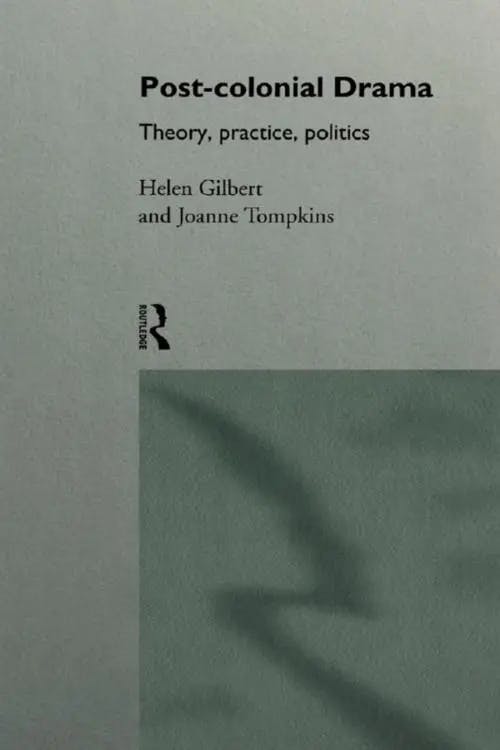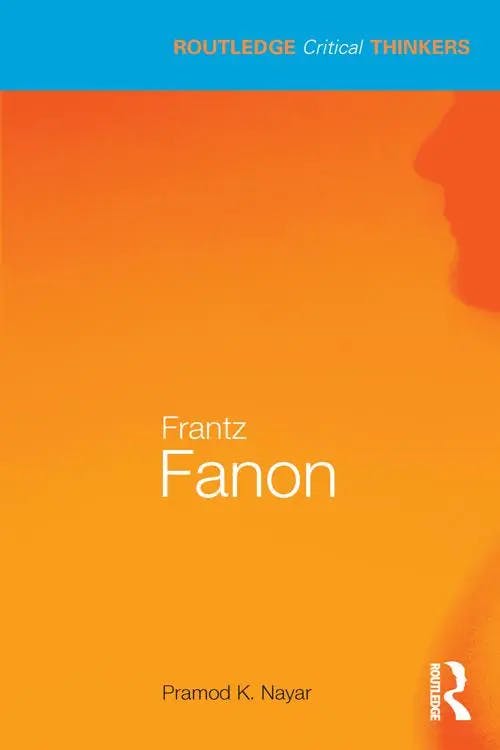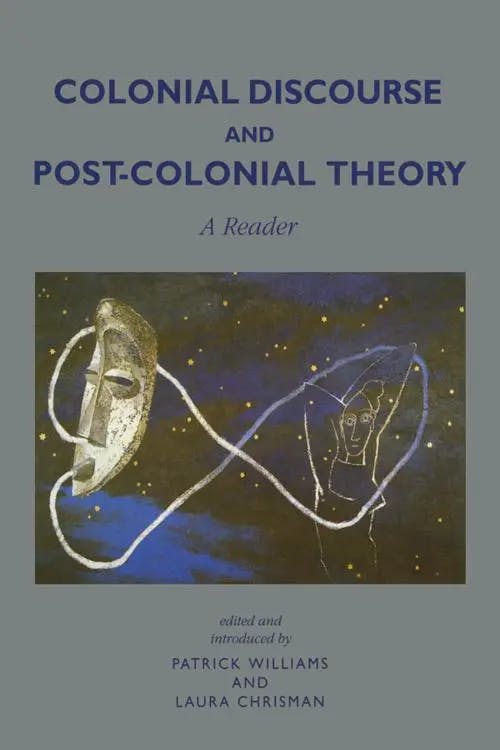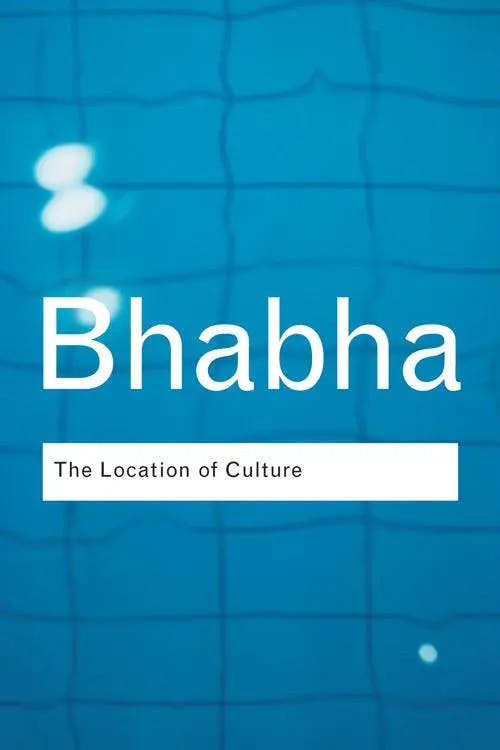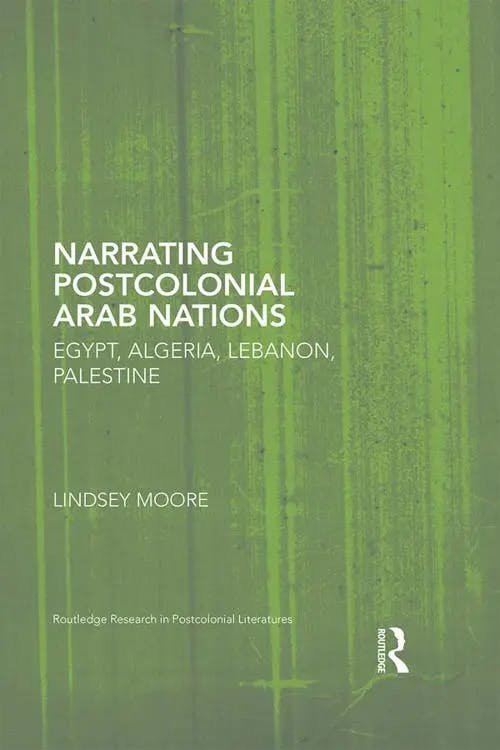What is Postcolonialism?
PhD, English Literature (Lancaster University)
Date Published: 08.03.2023,
Last Updated: 16.01.2024
Share this article
Defining Postcolonialism & Postcolonial Theory
Postcolonialism is the critical study of colonialism’s cultural, political and economic impact. This theoretical field addresses both the period of colonisation and how notions of Western superiority, used to justify the oppression of indigenous people, have continued into the present day. Much of the discourse in postcolonial studies addresses the relationship between imperialism and identity, specifically looking at how colonisers generate assumptions and cultural knowledge about colonised nations and their people. Acknowledging how Western interests, values and ideologies have shaped representations of colonised countries and their people, postcolonial theory offers a counter-narrative to this, focusing on experiences of colonisation, slavery, migration, race and suppression/resistance from the perspective of those who have suffered under it.
As Padmini Mongia discusses in the introduction to Contemporary Postcolonial Theory (2021), the term ‘postcolonial’ has been used to cover a wide array of nations and cultures. This generalisation, Mongia argues, ‘flattens and homogenizes the impact of colonialism on different parts of the world’ (2021).
However, as Helen Gilbert and Joanne Tompkins write in Post-Colonial Drama: Theory, Practice, Politics (2002):
The term post-colonialism—according to a too-rigid etymology—is frequently misunderstood as a temporal concept, meaning the time after colonialism has ceased…Colonisation is insidious: it invades far more than political chambers and extends well beyond independence celebrations. Its effects shape language, education, religion, artistic sensibilities, and, increasingly, popular culture. A theory of post-colonialism must, then, respond to more than the merely chronological construction of post-independence, and to more than just the discursive experience of imperialism. (2002)
Helen Gilbert, Joanne Tompkins
The term post-colonialism—according to a too-rigid etymology—is frequently misunderstood as a temporal concept, meaning the time after colonialism has ceased…Colonisation is insidious: it invades far more than political chambers and extends well beyond independence celebrations. Its effects shape language, education, religion, artistic sensibilities, and, increasingly, popular culture. A theory of post-colonialism must, then, respond to more than the merely chronological construction of post-independence, and to more than just the discursive experience of imperialism. (2002)
They go on to explain that postcolonialism does not solely address the history of colonialism, but also looks at resistance to colonialism. Specifically, Gilbert and Tompkins see this resistance to colonialism in plays such as George Farquhar’s The Recruiting Officer (1789). Further famous examples of postcolonial literature include Chinua Achebe’s Things Fall Apart (1958) and Toni Morrison’s Beloved (1987).
Resistance to colonisation is not solely the physical resistance in fighting for independence, but also a resistance to the Eurocentric ideologies that have lingered, in one form or another, since the days of the British Empire. These racist and imperialist notions were used to justify the violent occupation of numerous ‘Third World’ nations, such as India and Africa, and their continued oppression under British rule until the late nineteenth and early twentieth century. Justifications for colonialist expansion included the ‘mission’ to ‘civilise’ other nations and make them prosperous by introducing them to their Christian way of life. This imperialist aim was typified in the phrase ‘white man’s burden’, taken from an 1899 Rudyard Kipling poem of the same name. This resulted in the erasure of the colonised nation’s own culture, language and, for many, sense of identity.
Frantz Fanon and the Psyche of the Colonised
Discussions of the West’s claim to superiority, and the subsequent impact upon the colonised, is discussed in Frantz Fanon’s The Wretched of the Earth (1961) written at the peak of the Algerian war for independence. In this, Fanon writes that,
As if to show the totalitarian character of colonial exploitation the settler paints the native as a sort of quintessence of evil…The native is declared insensible to ethics; he represents not only the absence of values, but also the negation of values. He is, let us dare to admit, the enemy of values, and in this sense he is the absolute evil. (1961)
The demonisation of the native has a psychological impact, the effects of which Fanon discusses in further detail in his influential work Black Skin, White Masks (1967). Here, Fanon explains how the colonised subject can only define themselves in relation to their white oppressors; as Western ideology represents white as the norm and black as a deviation from that norm, the black person comes to see themselves as inferior, craving validation and recognition from their oppressor. As Fanon writes, the ‘black man’ is confronted by the ‘dilemma, turn white or disappear’ (100), filling him with shame and self-contempt. This sense of inadequacy is a further example of the violence of colonialism.
As Pramod K. Nayar writes, summarising Fanon’s work in Frantz Fanon,
ll recognition belongs to the white master, who is empowered to recognize and to grant recognition…This destroys any chance of identity-formation for the black man. In the European’s non-reciprocating gaze the black man is merely an object. (2012)
Pramod K. Nayar
ll recognition belongs to the white master, who is empowered to recognize and to grant recognition…This destroys any chance of identity-formation for the black man. In the European’s non-reciprocating gaze the black man is merely an object. (2012)
Fanon demonstrates that colonial power extends beyond geographical conquest and impacts upon the self-perception of colonised people, who begin to imbibe the racial ideologies of their oppressors.
Edward Said’s Orientalism & Postcolonial theory
The influence of Fanon can be seen in one of the founding texts in postcolonial theory: Edward Said’s Orientalism (1978). In this work, Said demonstrates how the West, via journalism, literature, academia and other cultural forms, has constructed an image of the East (Said refers to this as ‘the Orient’) as barbaric and degenerate. As Said puts it, Orientalism is ‘a Western style for dominating, restructuring, and having authority over the Orient’.
Due to its political and economic power, the West is able to represent and control the way that the East is perceived. In Western renditions, the East becomes exotic, uncivilised, the antithesis of the rational and civilised West (otherwise known as the Occident). The impacts of colonialism continue as these representations endure through the centuries and continue to impact the material reality of those living outside the West.
By framing the East, and its populations, as innately different, the coloniser can justify their oppression under the guise of ‘civilising’ the culture. As Said writes:
The Orient and Islam have a kind of extrareal, phenomenologically reduced status that puts them out of reach of everyone except the Western expert. From the beginning of Western speculation about the Orient, the one thing the orient could not do was to represent itself. (1978)
In other words, representations of the East have been articulated through the lens of the ‘Western’ expert. In the nineteenth century, for example, various writers would visit colonised nations and report back their findings to their readership with a mixture of outrage and excitement. These locations and their inhabitants were portrayed, in travel writing, art and in fiction, as either a source of fear or a source of exoticism and wonder. This dichotomy is shown particularly in the early-nineteenth century representations of the harem which presented Eastern and Middle-Eastern countries as being populated with lustful and barbaric men and submissive, exotic women; this can be seen in erotic works such as The Lustful Turk (1828) or John Frederick Lewis’s painting The Harem (1876).
These stereotypes can also be seen in more modern popular culture. Disney’s Aladdin (1992) is a good example. In the film, Aladdin and his love-interest Jasmine are visually represented with typically European features. By contrast, the villains in the film speak in thick foreign accents, have darker skin and more exaggerated expressions. Another example would be Indian Jones and the Temple of Doom (1984), which places the titular hero in India. In this film, the Indian characters are shown to eat monkey brain soup and be part of a cult, engaging in sacrificial, ritualistic killings, conforming to the contorted racial stereotypes that Said argues are produced by Orientalism. Such examples demonstrate how colonial ideology is woven into the fabric of Western cinema’s representational logic.
(For more detail, you can explore our dedicated Orientalism study guide.)
Spivak’s Influence on Postcolonial Theory
The work of postcolonial theorist Gayatri Chakravorty Spivak suggests that the Western expert (which Said spoke of) continues to represent the interests of marginalised groups in academic discourse. In her essay ‘Can the Subaltern Speak?’, found in Colonial Discourse and Post-Colonial Theory, (2008 [2015]), Spivak uses the term subaltern to describe colonial populations who are often spoken for in academic discourse. Spivak argues that for postcolonial studies to be truly representative, it must include the voices of the colonised. Instead, Spivak suggests, postcolonial studies is dominated by white men who speak about non-white men and women from cultures vastly different from their own.
In particular, Spivak is interested in how women from colonised countries are silenced. She writes that ‘[w]hite men are saving brown women from brown men’ (Spivak, 2008, [2015]) . Here, Spivak conveys how cultural gender norms are used to excuse colonisation and violence. Under the guise of feminism, white men are attempting to ‘save’ indigenous women from their own cultures, further perpetuating a Eurocentric ideology.
To demonstrate this, Spivak uses the example of the abolition of the Hindu rite of sacrifice. In this sacrifice, a Hindu widow (also referred to as ‘sati’) would immolate herself in the pyre of her dead husband. Spivak goes on to argue that the British abolition, along with their mistranslation of the ‘sati’ to ‘sacrificed widows’ indicated that the women were without agency, subjected to brutal violence at the hands of their ‘uncivilised’ and patriarchal culture. In fact, the women’s testimony regarding this rite is not sought after; the white men thus save brown women, regardless of whether they want to be saved or not.
Spivak goes on to state that:
Between patriarchy and imperialism, subject-constitution and object-formation, the figure of the woman disappears, not into a pristine nothingness, but into a violent shuttling which is the displaced figuration of the ‘third-world woman’ caught between tradition and modernization. (2008, [2015])
Patrick Williams, Laura Chrisman
Between patriarchy and imperialism, subject-constitution and object-formation, the figure of the woman disappears, not into a pristine nothingness, but into a violent shuttling which is the displaced figuration of the ‘third-world woman’ caught between tradition and modernization. (2008, [2015])
The modern, Western world in an apparent attempt to ‘save’ women from seemingly patriarchal traditions, is discounting the experiences, values and beliefs of these women. The subaltern, Spivak concludes, cannot speak as her own lived experience is discounted in order to conform to Western feminist ideals, rooted in Eurocentricism.
Homi K. Bhabha and Hybridity
Unlike Said or Spivak, critical theorist Homi K. Bhabha suggests that there are discursive limits to the binary of coloniser/colonised. In The Location of Culture (1994), Bhabha argues that the ‘post-colonial perspective resists the attempt at holistic forms of social explanation (1994 [2012])’. Bhabha, instead, suggests a postcolonial theory which acknowledges the immersion of cultures that occurs as a result of colonisation; he refers to this amalgamation of cultures as ‘hybridisation’. For Bhabha, culture is not static and is in constant flux due to a combination of colonisation, migration and travel. Thus, there is not a single, ‘essential’ culture for each nation.
Through hybridisation, Eurocentric ideologies, customs and practices become subversive acts when adopted by members of the colonised nations. As Bhabha explains,
Hybridity is the sign of the productivity of colonial power, its shifting forces and fixities; it is the name for the strategic reversal of the process of domination through disavowal (that is, the production of discriminatory identities that secure the ‘pure’ and original identity of authority)…It unsettles the mimetic or narcissistic demands of colonial power but reimplicates its identifications in strategies of subversion that turn the gaze of the discriminated back upon the eye of power. (1994 [2012])
Homi K. Bhabha
Hybridity is the sign of the productivity of colonial power, its shifting forces and fixities; it is the name for the strategic reversal of the process of domination through disavowal (that is, the production of discriminatory identities that secure the ‘pure’ and original identity of authority)…It unsettles the mimetic or narcissistic demands of colonial power but reimplicates its identifications in strategies of subversion that turn the gaze of the discriminated back upon the eye of power. (1994 [2012])
Hybridity can be seen in colonised people incorporating the coloniser’s values and behaviours, known as mimicry; this mimicry becomes part of the colonised nation’s own culture. These ‘Western’ traits are reflected back in the behaviours of the colonised. Seeing their behaviours and customs imitated by those under imperialist rule undermines the assumed Europeanness of the coloniser’s habits and mannerisms. Hybridity, therefore, looks at mimicry from a new perspective; rather than it being a symbol of submission, it becomes a symbol of resistance problematising the coloniser’s view of cultural purity. There are issues with this concept, however. In particular, hybridity discounts the power imbalances inherent in colonisation.
Debates Within Postcolonial Studies
One of the major critiques of postcolonialism study has been its omission of the Middle East. In his essay ‘Edward Said and the Institution of Postcolonial Studies’ (2018), Karim Mattar argued that the lack of engagement with the Middle East has led to the misinterpretation of Said’s work. Mattar suggests that, in the 1980s and 90s when Said was writing,
‘scholars who identified themselves with the rapidly emerging field of postcolonial studies paid little or no heed to the politics, history and cultures of Palestine or the Middle East, both central points of departure for Said as he developed the very theoretical foundations on which the field was built. (Mattar, 2018)
This geographical bias, as Lindsey Moore identifies in Narrating Postcolonial Arab Nations (2017), has been particularly apparent in literature:
[p]ostcolonial literary studies in English—which still has the tendency to arrogate ‘postcolonial studies’ to itself—has been unconscionably slow to engage the Arab world and perversely so, given the origin of some of its animating theories. (2017)
Lindsey Moore
[p]ostcolonial literary studies in English—which still has the tendency to arrogate ‘postcolonial studies’ to itself—has been unconscionably slow to engage the Arab world and perversely so, given the origin of some of its animating theories. (2017)
Neil Lazarus echoes this sentiment more broadly in The Postcolonial Unconscious (2011) by noting how the corpus of literary works analysed within postcolonial studies is ‘woefully restricted and attenuated’(22). Moreover, Lazarus suggests that the works which are engaged with rely upon tropes and terminology which are, as Timothy Brennan writes, ‘very alien or indifferent to the actual corpus of non-western literature’ (‘Re-imagining postcolonial studies: a discussion of Neil Lazarus’s The Postcolonial Unconscious’, 2012, 100).
These issues within postcolonialist studies, however, are being slowly addressed through recent works which focus on the country or region-specific impact of colonisation. Moreover, postcolonialism as a field continues to adapt and address new forms of colonialism, such as economic and political, that have begun to emerge with the rise of globalisation. In your own research and writing, be attendant to these nuances and complexities that underpin the concept of postcolonialism. It is a field that is constantly growing and addressing its own shortcomings, and new writing on the subject should be reflective of these shifts.
Postcolonialism is a vast field and continues to be increasingly relevant in the modern world. In their work The Empire Writes Back (1989 [2003]), Bill Ashcroft, Gareth Griffiths and Helen Tiffin argue that postcolonialism is still relevant. While Britain, they highlight, has ‘been relegated to a relatively minor place in international affairs’ compared to the USA, its influence continues to be felt in the literary canon, resulting in their domination of cultural products. They state that,
This cultural hegemony has been maintained through canonical assumptions about literary activity, and through attitudes to post-colonial literatures which identify them as isolated national off-shoots of English literature, and which therefore relegate them to marginal and subordinate positions. (1989 [2003])
Postcolonial studies, particularly within literary criticism, is crucial in amplifying the voices of marginalised writers. Introducing literature from across the globe, or by non-white or non-British writers, provides a counter narrative to the colonialist and often Eurocentric fiction which has long dominated the field of literary studies.
In addition to expanding and advancing the field of literary studies, postcolonialism provides a lens through which to view recent discussions and debates surrounding colonialism. In recent years, decolonisation of the curriculum at universities and resistance to figures associated with colonisation and slavery (such as the toppling of the Edward Coleston statue in Bristol in June 2020), has demonstrated the relevance of postcolonialism studies today. Moreover, the divisiveness of such events in the public eye indicates the conversation surrounding the enduring impacts of imperialism are far from over. Postcolonial studies are, therefore, essential in helping to frame and assess the political, social and cultural consequences of colonisation which are still apparent today.
Further Postcolonialism Resources & Reading on Perlego
Batra, K. (2021). Worlding Postcolonial Sexualities: Publics, Counterpublics, Human Rights. Routledge.
Kabesh, A. T. (2016). Postcolonial Masculinities: Emotions, Histories and Ethics. Routledge.
Lewis, R and S. Mills. (2003). Feminist Postcolonial Theory: A Reader. Routledge.
Spivak, G.C. (1999) A Critique of Postcolonial Reason: Toward a History of the Vanishing Present. Harvard University Press.
Spivak, G. C. (2012). In Other Worlds: Essays In Cultural Politics. Routledge.
Bibliography
Ashcroft, B, Gareth Griffiths and Helen Tiffin. (1989 [2003]). The Empire Writes Back. Routledge.
Bhabha, H. K. (2012). The Location of Culture. Routledge.
https://www.perlego.com/book/1609977/the-location-of-culture-pdf
Bhabha, H. K. (2013). Nation and Narration. Routledge.
https://www.perlego.com/book/1677670/nation-narration-pdf
Brennan, T. (2012). ‘Re-imagining postcolonial studies: a discussion of Neil Lazarus’s The Postcolonial Unconscious’. Race & Class, 54(2), 100-107
Fanon, F. (1963). The Wretched of the Earth. Grove Press.
https://monoskop.org/images/6/6b/Fanon_Frantz_The_Wretched_of_the_Earth_1963.pdf
Gilbert, H and Joanne Tompkins. (2002) Post-Colonial Drama: Theory, Practice, Politics. Routledge.
https://www.perlego.com/book/1617886/postcolonial-drama-theory-practice-politics-pdf
Lazarus, N. (2011) The Political Unconscious. Cambridge University Press.
https://www.cambridge.org/core/books/postcolonial-unconscious/18D408A12051C4149930E41B4BB88D3B
Mattar, K. (2018). ‘Edward Said and the Institution of Postcolonial Studies’ in The Edinburgh Companion to the Postcolonial Middle East. University of Edinburgh Press.
Mongia, P. (2021). Contemporary Postcolonial Theory. Routledge.
https://www.perlego.com/book/2094470/contemporary-postcolonial-theory-a-reader-pdf?
Moore, L. (2017) Narrating Postcolonial Arab Nations: Egypt, Algeria, Lebanon, Palestine. Routledge.
Nayar, P. K. (2012). Frantz Fanon. Routledge.
https://www.perlego.com/book/1621705/frantz-fanon-pdf
Said, E. W. (1979). Orientalism. Vintage Books.
https://monoskop.org/images/4/4e/Said_Edward_Orientalism_1979.pdf
Spivak, G. C. (2015) ‘Can the Subaltern Speak?’ in Colonial Discourse and Post-Colonial Theory ed. Patrick Williams and Laura Chrisman. Routledge.
Postcolonialism FAQs
What is postcolonialism in simple terms?
What is postcolonialism in simple terms?
What is an example of postcolonial literature?
What is an example of postcolonial literature?
What is orientalism?
What is orientalism?
What is the difference between postcolonialism and colonialism?
What is the difference between postcolonialism and colonialism?
Who are some key writers in postcolonial theory?
Who are some key writers in postcolonial theory?
PhD, English Literature (Lancaster University)
Sophie Raine has a PhD from Lancaster University. Her work focuses on penny dreadfuls and urban spaces. Her previous publications have been featured in VPFA (2019; 2022) and the Palgrave Handbook for Steam Age Gothic (2021) and her co-edited collection Penny Dreadfuls and the Gothic was released in 2023 with University of Wales Press.

